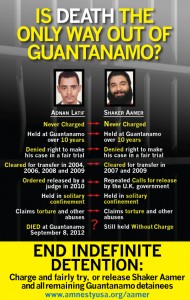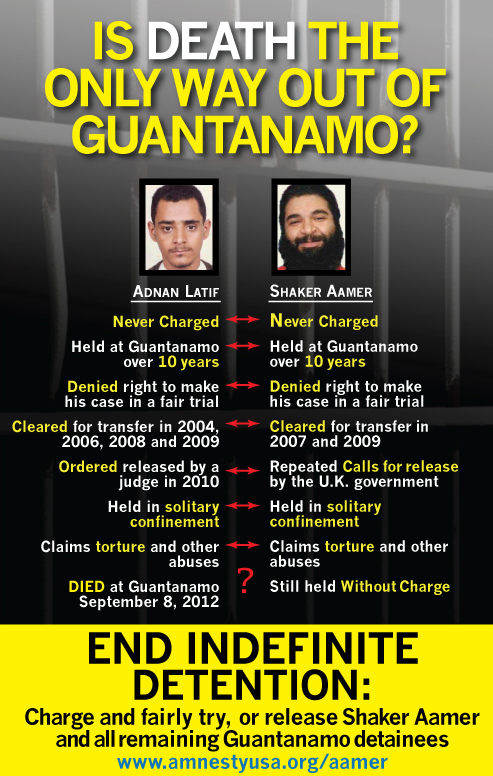Judge John Bates took a stand for human rights and common sense when he ruled yesterday that foreign prisoners held in the U.S. prison at Bagram airbase in Afghanistan who had been brought there from outside Afghanistan may challenge their continued detention in the U.S. courts.
The petition before the U.S. District Court had been brought by four inmates at Bagram seeking to extend the Supreme Court’s Boumediene decision, that recognized habeas corpus rights for detainees at Guantanamo, to detention facilities in Afghanistan.
The four inmates include Amin al-Balri, a Yemeni national, who was detained in Thailand; Redha Al-Najar, a Tunisian, who was detained in Pakistan; Fadi al Maqaleh, a Yemeni national, who was detained in an undisclosed location outside Afghan borders; and Haji Wazir, an Afghan national, who was apprehended in Dubai.
Judge Bates noted that three of the four petitioners had no connection with Afghanistan prior to their transfer to Bagram. He added that although practical obstacles existed in resolving a detainee’s right to habeas corpus in a war zone, these obstacles were of the U.S. government’s choosing since it had opted to render them to this location:
“It is one thing to detain those captured on the surrounding battlefield at a place like Bagram, which respondents correctly maintain is in a theater of war. It is quite another thing to apprehend people in foreign countries – far from any Afghan battlefield – and then bring them to a theater of war, where the Constitution arguably may not reach.”
Applying the functional, multi-factor, detainee-by-detainee test mandated by the Supreme Court in its Boumediene decision, Judge Bates upheld the habeas rights of all but Haji Wazir. Disappointingly, the judge held that as an Afghan national, even one apprehended outside the country, Wazir could legitimately be held as an enemy combatant.
However, the process used by U.S. forces in Afghanistan for determining whether an individual can be classified as an enemy combatant was also criticized, with Judge Bates labeling it “inadequate” for the task at hand and even less thorough than the discredited Combatant Status Review Tribunals established in Guantanamo.
Although Judge Bates did not seek to expand the scope of his ruling beyond the petition before him, it can nevertheless be seen as a body blow to the global war doctrine previously espoused by the Bush administration.
If the judgment stands, individuals detained outside a military theater – for example, the fictional terrorist financier in the Philippines posited by Senator Lindsay Graham during Solicitor-General Elena Kagan’s confirmation hearing – should henceforth be destined for the criminal justice system rather than a prisoner of war camp.
Furthermore, an unsubstantiated accusation will no longer be enough to condemn such a detainee to endless years in limbo. Thursday was not just a good day for the Constitution of the United States, it was a red letter day for the Magna Carta as well!





